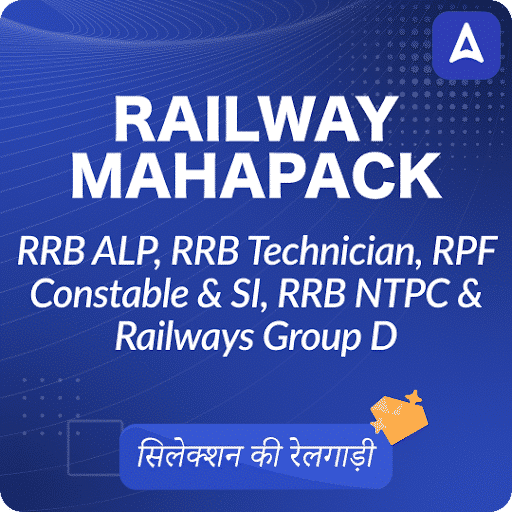The Railway Recruitment Board (RRB) conducts the Junior Engineer exam to recruit candidates for various technical roles within the Indian Railways out of which Electrical Engineering is one of them. This is a good opportunity for candidates with engineering backgrounds. This position of Electrical Junior Engineer holds particular significance, as it involves the management of electrical systems for the safe and efficient operation of the railway network. Here for the candidate’s convenience, we have covered the detailed RRB JE Electrical Syllabus 2024, which will guide candidates in their subject preparation. Understanding the syllabus with topics and their sub-topics will help you to identify your strengths and weaknesses and strategize your study accordingly.
RRB JE Electrical Syllabus 2024
Every time RRB announces huge number of vacancies in this particular recruitment drive and every time the number of candidates registering excels the previous time. To stand out from the crowd and get the desired success candidates must start their preparation journey from now. The initial stage of preparation is knowledge of the syllabus. The Electrical subject falls under Paper 2 of Technical Abilities which is conducted for marks 100 with a combined time of 120 minutes with 4 other sections. Check out the topic-wise RRB JE Syllabus 2024 below.
Basic concepts: Concepts of resistance, inductance, capacitance, and various factors affecting them. Concepts of current, voltage, power, energy, and their units.
Circuit law: Kirchhoff‘s law, Simple Circuit solution using network theorems.
Magnetic Circuit: Concepts of flux, mmf, reluctance, Different kinds of magnetic materials, Magnetic calculations for conductors of different configurations e.g. straight, circular, solenoidal, etc. Electromagnetic induction, self, and mutual induction.
AC Fundamentals: Instantaneous, peak, R.M.S. and average values of alternating waves, Representation of sinusoidal wave form, simple series and parallel AC Circuits consisting of R.L. and C, Resonance, Tank Circuit. Poly Phase system – star and delta connection, 3 phase power, DC, and sinusoidal response of R-Land R-C circuit.
Measurement and measuring instruments: Measurement of power (1 phase and 3 phase, both active and re-active) and energy, 2 wattmeter method of 3 phase power measurement. Measurement of frequency and phase angle. Ammeter and voltmeter (both moving oil and moving iron type), an extension of range wattmeter, Multimeters, Megger, Energy meter AC Bridges. Use of CRO, Signal Generator, CT, PT, and their uses. Earth Fault detection.
Electrical Machines:
(a) D.C. Machine – Construction, Basic Principles of D.C. motors and generators, their characteristics, speed control, and starting of D.C. Motors. Method of braking motor, Losses and efficiency of D.C. Machines.
(b) 1-phase and 3-phase transformers – Construction, Principles of operation, equivalent circuit, voltage regulation, O.C. and S.C. Tests, Losses, and efficiency. Effect of voltage, frequency, and waveform on losses. Parallel operation of 1-phase/3 phase transformers. Auto transformers.
(c) 3-phase induction motors, rotating magnetic field, the principle of operation, equivalent circuit, torque-speed characteristics, starting and speed control of 3-phase induction motors. Methods of braking, the effect of voltage and frequency variation on torque speed characteristics, Fractional Kilowatt Motors and Single Phase Induction Motors: Characteristics and applications.
Synchronous Machines: Generation of 3-phase e.m.f. armature reaction, voltage regulation, parallel operation of two alternators, synchronizing, and control of active and reactive power. Starting and applications of synchronous motors.
Generation, Transmission, and Distribution: Different types of power stations, Load factor, diversity factor, demand factor, cost of generation, and interconnection of power stations. Power factor improvement, various types of tariffs, types of faults, and short circuit current for symmetrical faults. Switchgear and Protection: Rating of circuit breakers, Principles of arc extinction by oil and air, H.R.C. Fuses, Protection against earth leakage / over current, etc. Buchholz relay, Merz-Price system of protection of generators & transformers, protection of feeders and bus bars. Lightning arresters, various transmission and distribution systems, comparison of conductor materials, efficiency of different systems. Cable – Different types of cables, cable rating, and derating factors.
Estimation and costing: Estimation of lighting scheme, electric installation of machines, and relevant IE rules. Earthing practices and IE Rules.
Utilization of Electrical Energy: Illumination, Electric heating, Electric welding, Electroplating, Electric drives and motors.
Basic Electronics: Working of various electronic devices e.g. P N Junction diodes, Transistors (NPN and PNP type), BJT, and JFET. Simple circuits using these devices.
We hope that the information provided above will help you to prepare for your upcoming RRB JE Examination 2024. For regular and latest updates candidates are suggested to follow the page.
Source link


